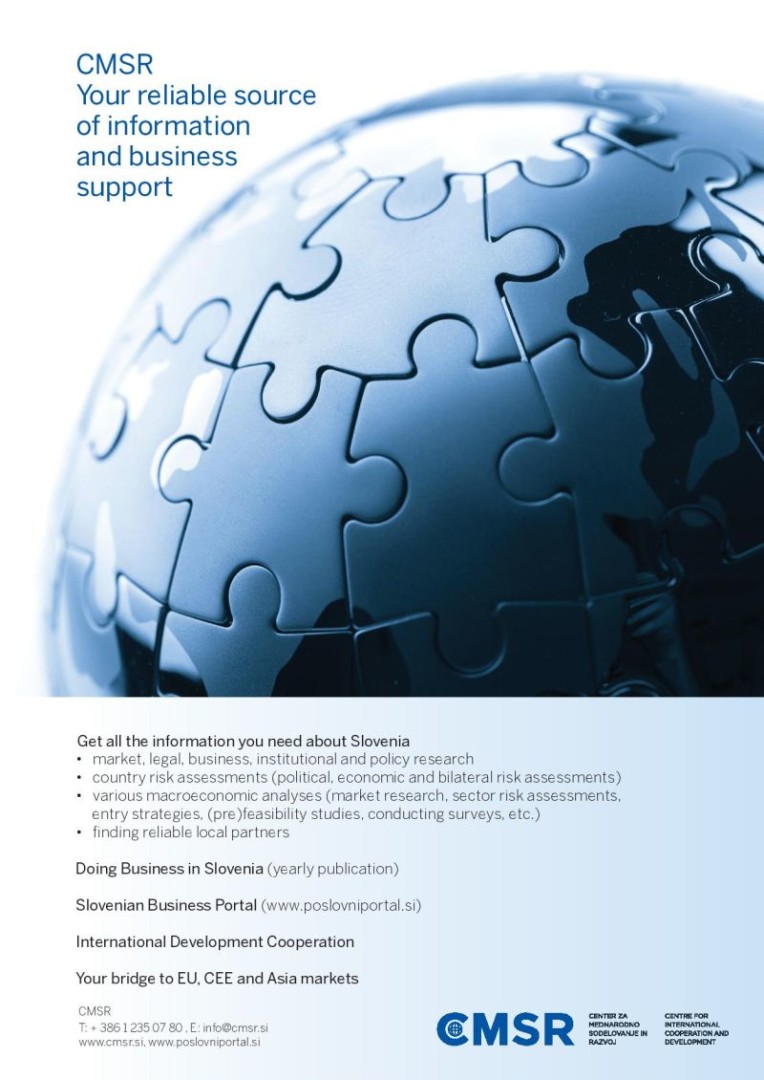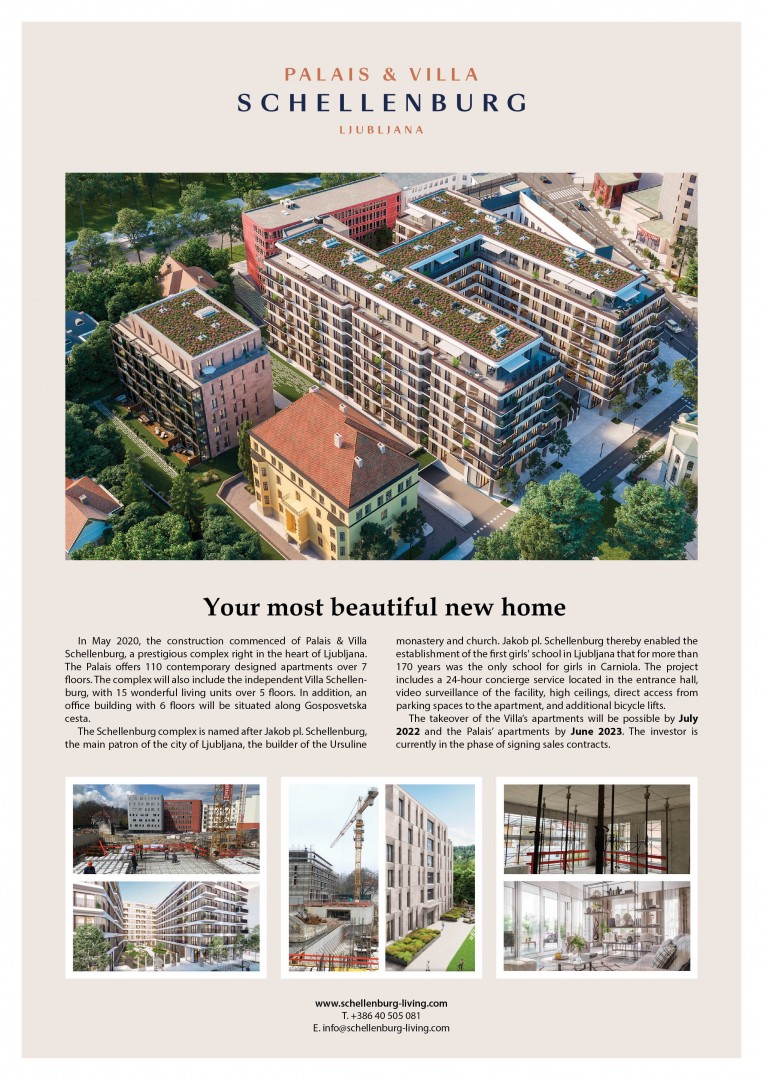Location
Southern Central Europe, bordering Italy, Austria, Hungary, Croatia and the Adriatic Sea.
Time
GMT + 1
(Summer time: GMT + 2 from the last Sunday in March to the last Sunday in October).
Main cities
Ljubljana is the capital city of Slovenia (289,518 residents). The other main cities are Maribor (110,871), Kranj (55,950), Koper (51,794), Celje (49,377), Novo mesto (36,533) and Velenje (32,802).
Slovenian is a Slavic language closely related to Croatian, Serbian, Slovak and Czech. Most Slovenians speak English as a second language; German and Italian are also spoken, especially in the areas bordering Austria and Italy.
Currency
Euro (EUR; symbol €) = 100 cents. Notes are in denominations of €500, 200, 100, 50, 20, 10 and 5. Coins are in denominations of €2 and €1, and 50, 20, 10, 5, 2 and 1 cents.
Foreign currencies can be exchanged at banks and exchange bureaus.
Credit cards
MasterCard, Maestro, Visa, Visa Electron, Amex and Diners are generally accepted in most shops and restaurants. Cash withdrawals from automated teller machines can be made with Maestro, MasterCard, Visa, Cirrus and Visa Electron Plus cards and at some ATMS also with Dinerscards.
Telephone
The country code is + 386; the international call prefix is 00; the prefix for local calls is 0.
Area codes: Ljubljana 1, Maribor 2, Celje 3, Kranj 4, Koper 5, Novo mesto 7.
Mobile operator codes: 31, 41, 40, 50, 51, 59, 70 etc.
Toll-free number codes: 80; commercial number codes: 89, 90.
In all cases, the prefix 0 must be dialled for local calls. For example, to call Ljubljana from abroad, dial 386+ 1 + the local number; but to call Ljubljana from another area within Slovenia, dial 01 + the local number.
Important phone numbers
| Police | 113 |
|---|---|
| Ambulance | 112 |
| Info Centre | 112 |
| Breakdown Assistance | 1987 |
| Transmission of national and international calls | 0115 |
| Time | 195 |
| Information on phone numbers in Slovenia | 1188 |
| Information on foreign phone numbers | 1180 |
Internet
The Internet country domain for Slovenia is ”.si” . The Internet is well used, 90% of households and 99% of companies have Internet access, mostly broadband. On-line banking, e-government services and electronic commerce are well developed. Recommended webpages providing information on Slovenia are www.slovenia.si (general information), www.spot.si, www.investslovenia.si, www.poslovniportal.si (business information), www.najdi.si (a web browser), www.slovenia.info (tourist information); and the webpages of governmental institutions (see Useful Addresses).
Public holidays in 2023
| 1,2 January | New Year |
|---|---|
| 8 February | Cultural Day |
| 9 April | Easter |
| 10 April | Easter Monday |
| 27 April | Day of Uprising Against the Occupation |
| 1,2 May | Labour Day |
| 25 June | Statehood Day |
| 15 August | Assumption Day |
| 31 October | Reformation Day |
| 1 November | All Saints Day |
| 25 December | Christmas |
| 26 December | Independence Day |
Distances between Ljubljana and main European cities
| Amsterdam | 1,478 km |
|---|---|
| Athens | 1,682 km |
| Vienna | 395 km |
| Frankfurt | 988 km |
| Berlin | 1,178 km |
| Madrid | 2,189 km |
| Paris | 1,256 km |
| Prague | 759 km |
| Rome | 811 km |
| Zurich | 672 km |
Diplomatic missions and consular posts
Information about diplomatic missions and consular posts can be found on the webpages of the Ministry of Foreign Affairs at www.mzz.gov.si.
Entry visa
Slovenia is a member of the Schengen area.
Citizens of certain countries require a Schengen visa to enter the Schengen area. The list of these countries is published on the website of the European Commission, DG Home Affairs.
Visas are issued by Slovenian diplomatic and consular representations abroad or by those of another Schengen member state where representation in the visa procedure has been agreed.
Business hours
Government offices: Mondays to Fridays: 08:00 – 16:00
Other offices: Mondays to Fridays: 09:00 – 17:00
Banks: Mondays to Fridays: 08:00 – 17:00. Many branches have a lunch break.
Stores: Mondays to Fridays: 07:00 – 19:00; Saturdays 07:00 – 13:00
Larger stores: Mondays to Saturdays: 07:00 – 20:00
Business etiquette
The usual European social conventions apply; smart dress is advised for business meetings. Appointments are usual and visitors should be punctual.
Shaking hands is the usual way of greeting someone. Business cards are usually exchanged at the beginning of a meeting. Executives will generally have good knowledge of English or German.
There is a well-developed network of local agents, advisers, consultants and lawyers who are willing to act for foreign companies.







